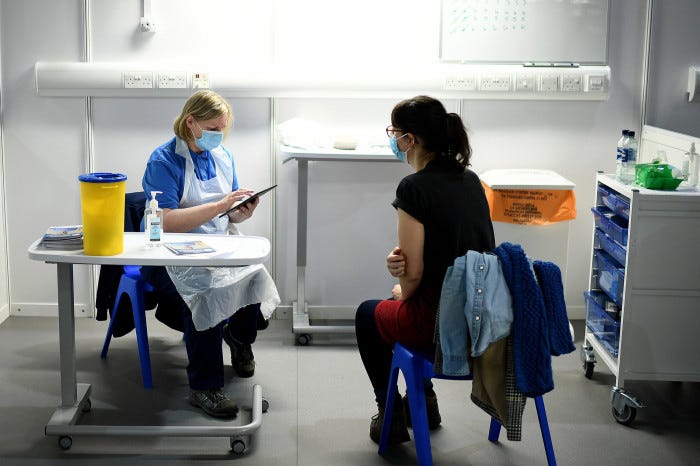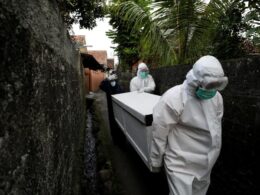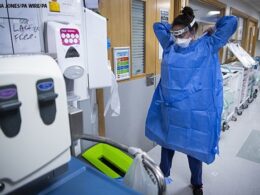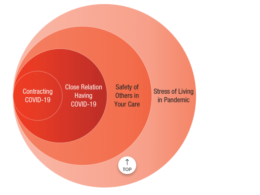Site Editor:
Joaquim Cardoso MSc.
The Health Strategist — research, strategy and implementation
September 27, 2022
Key messages:
- The virus has not gone away — but clean air and smart policies can keep it at bay
- … air purifiers in classrooms… could clear 90 per cent of virus-laden aerosol particles in a room. … The units were more effective than conventional window ventilation alone.
Financial Times
Pippa Stephens
September 27, 2022
Germany’s national obsession with Lüften, the art of airing rooms, was sometimes regarded as a quirk best kept to itself.
Even in the bleak midwinter, windows would be flung open to let fresh air in. But then the coronavirus pandemic came along.
Although it was initially disputed that coronavirus spreads through the air, we now know differently.
Up to 90 per cent of infections are passed on in this way, according to Julian Tang, a virologist and professor of respiratory sciences at the University of Leicester.
And it seems the Germans were right all along: studies show that good ventilation works to minimise airborne virus transmission.
… studies show that good ventilation works to minimise airborne virus transmission.
This holds several lessons for companies trying to bring staff back to the office safely, as the world edges back towards ‘normality’.
“The pandemic hasn’t gone away yet,” warns Steven Nimmo, a consultant doctor and president of the Faculty of Occupational Medicine.
“The great concern at the moment is we haven’t seen seasonal flu since the start of the pandemic.
That’s because people have been socially isolating. There’s the potential for disaster, really, in terms of a combination of Covid with flu this season.”
Tang suggests employers can try to help.
“If you are in a large office block that’s quite well ventilated, like one of the big accountants — they may have the ability to ramp up their ventilation across the building, or to buy and install a portable air purifier,” he says.
“If you are in a large office block that’s quite well ventilated, like one of the big accountants — they may have the ability to ramp up their ventilation across the building, or to buy and install a portable air purifier,” he says.
One German study of air purifiers in classrooms and how they affect coronavirus transmission found that, in under half an hour, the devices could clear 90 per cent of virus-laden aerosol particles in a room.
The authors of the research, published in the International Journal of Environmental Research and Public Health, said the units were more effective than conventional window ventilation alone.
… air purifiers in classrooms… could clear 90 per cent of virus-laden aerosol particles in a room. … units were more effective than conventional window ventilation alone.
In the UK, air quality at work is specified by the Health and Safety Executive.
It says air conditioning systems must ensure the flow of fresh air does not fall below five to eight litres per second per member of staff.
Or, where there is no mechanical ventilation, the HSE advises airing rooms for 10 minutes an hour to improve air quality as a stop-gap measure. Carbon dioxide monitors can be used to identify poorly ventilated rooms, the HSE adds.
But, for employers, a further factor to consider is the number of staff in any given workplace.
They have to ensure that each person has 11 cubic metres of space, the HSE says.
But, for employers, a further factor to consider is the number of staff in any given workplace. They have to ensure that each person has 11 cubic metres of space, the HSE says.
Vaccines also reduce transmission, notes Tang.
In Britain, 88 per cent of the public aged over 12 have been vaccinated with two shots, but only 70 per cent have so far received a booster jab.
“Many employers will say to their staff, take some time to go and get the vaccination, as they would [with] general medical appointments,” says Jane Gratton, head of people policy at the British Chambers of Commerce.

This is the approach taken by Commerzbank in Germany, where it has been several months since most coronavirus measures were scrapped.
The bank pays its staff for time they spend getting vaccinated, as it would for time spent working.
Making information clearly available about where staff can get vaccines — through poster or email campaigns — is good practice, too, says Gratton.
Alternatively, employers can just turn to sausage rolls. “In my [hospital], you get a free lunch if you have a flu vaccination,” says Nimmo. “They give you a voucher for Greggs, where you get a free pastry and free tea or coffee.”
Face coverings are another effective protective measure against Covid-19, even if they have rather gone out of fashion.
One study calculated that, if two people wear well-fitting FFP2 masks, and one is infected, the risk of transmitting coronavirus falls from 90 per cent to, at most, 0.4 per cent, even after an hour of talking.
If they wear surgical masks, the risk falls from 90 to, at most, 30 per cent.
“Masks do work,” says Tang. “The question is, can you tolerate them? And can you afford them?” Commerzbank recommends its staff wear masks.
Many staff are still absent from the office, though.
In early September, the number of people in the UK’s workplaces was still down 26 per cent compared with pre-pandemic levels, according to Google data.
For staff coming back into the office, Nimmo says managers should be aware of how a coronavirus infection could have affected them.

“We’re finding people returning to work after Covid suffer from various symptoms of fatigue, shortness of breath, chest pain, and muscle pains which may restrict their work capability for quite a few weeks,” he says — adding that occupational health departments should assess each case and advise what hours and duties are suitable.
“We’re finding people returning to work after Covid suffer from various symptoms of fatigue, shortness of breath, chest pain, and muscle pains which may restrict their work capability for quite a few weeks,” … occupational health departments should assess each case and advise what hours and duties are suitable.
A severe Covid-19 infection can increase the probability of new health problems emerging, as well — such as diabetes and heart or neurological conditions, according to the US Centers for Disease Control.
A severe Covid-19 infection can increase the probability of new health problems emerging, as well — such as diabetes and heart or neurological conditions, according to the US Centers for Disease Control.
To minimise the cost of absenteeism, it may make sense to invest in health insurance, Nimmo says.
Long waiting lists for NHS treatment in the UK can have expensive knock-on effects for companies.
Businesses are now well drilled in dealing with the dislocations that coronavirus has brought about.
However, even though the peak of the pandemic may have passed, proper workplace management through clean air, inoculation and care of staff will help to prepare employers as winter approaches.
However, even though the peak of the pandemic may have passed, proper workplace management through clean air, inoculation and care of staff will help to prepare employers as winter approaches.
Originally published at https://www.ft.com on September 27, 2022.
NAMES MENTIONED
Julian Tang, a virologist and professor of respiratory sciences at the University of Leicester.
Steven Nimmo, a consultant doctor and president of the Faculty of Occupational Medicine. Jane Gratton, head of people policy at the British Chambers of Commerce












